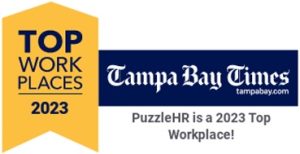Did You Know?
The number of Generation Z employees in the workforce is expected to surpass that of Baby Boomers by the end of 2024?
17.1 million members of Generation Z entered the workforce in 2023, a number which keeps rising. Born between 1996 and 2012, Gen Z grew up entirely in the digital age, meaning technology shapes their behaviors, communication styles, and work preferences. With some traits similar to Millennials and some all their own, leaders must navigate the unique characteristics Gen Z brings.
What Makes Gen Z Unique?
Tech-Savviness: Due to growing up in a world where technology was accessible and tech skills were often taught in schools, most members of Gen Z are highly digitally fluent. This makes them adept at leveraging technology and adapting to new developments, keeping them on the cutting edge.
Work-Life Balance: With the highest rate of mental health diagnoses or treatment at 55%, it’s no wonder that Gen Z finds work-life balance non-negotiable. 25% of Gen Z employees rank good work-life balance as a top reason they chose their organization. This generation values autonomy and flexibility at work.
Communication Preferences: Stemming from their technology use, specifically texting and online messaging, is Gen Z’s preference for instant, clear, and concise communication. Younger employees may favor email over phone calls or instant messaging over both.
Career Development and Purpose: 86% of Gen Z employees believe a sense of purpose is important to their job satisfaction, yet 70% of Gen Z employees are disengaged at work. This generation seeks meaningful work prioritizing creating change, career development, and continuous learning.
Leading Gen Z in the Workplace
Flexible Work Environments: Offer flexible work schedules, remote work options, and a high level of autonomy to attract and retain Gen Z talent. Implement policies supporting mental wellness and work-life balance to demonstrate commitment to their well-being.
Feedback and Communication: Engage Gen Z employees by adopting communication platforms that align with their preferences, such as collaborative tools or messaging apps. Provide opportunities for coaching and feedback, like mentorship programs or development plans.
Purpose-Driven Tasks: Highlight your organization’s values and provide opportunities for involvement in social initiatives to resonate with Gen Z employees. Ensure Gen Z employees stay engaged by assigning meaningful tasks rather than busy-work.
Whether your organization needs assistance establishing policies, implementing technology, or creating development plans that best suit the needs of your youngest employees, PuzzleHR has you covered! Contact us today to learn more.


















